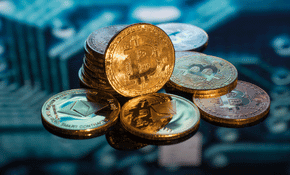The United Arab Emirates (UAE) has emerged as a major player in the global gold industry over the past few decades, with Dubai serving as one of the largest gold trading hubs in the world. UAE, and particularly the emirate of Dubai, has acquired the moniker "the city of gold" with a good cause. In 2020, gold accounted for 29 percent of the nation's overall non-oil foreign trade exports, and the UAE is presently the fourth biggest country in the world for gold imports, accounting for 11 percent of all worldwide gold exports. However, this growth has also brought with it an increased risk of money laundering, with the gold industry being a common route for illicit funds to enter the financial system. Despite efforts by regulators to combat money laundering, there have been several high-profile cases involving the UAE's gold industry in recent years.
A Double-Edged Sword for Financial Crime and Conflict-Free Mining
The Dubai Multi Commodities Centre ("DMCC"), the world's largest free zone of its kind, to the bustling gold souks and vast malls that house high-end fashion and jewelry brands, all combine to entice tens of thousands, if not hundreds of thousands, of individuals and enterprises to serve in the precious metals and stones sector in the nation.
The Financial Action Task Force (FATF), the Organization for Economic Cooperation and Development (OECD), and gold enterprise organizations such as the London Bullion Market Association (LBMA) have all highlighted the financial crime and supply chain risks associated with the trade-in gold from conflict and high-risk areas, as have media and civil society reports. Nonetheless, a number of legislative and regulatory gaps and deficiencies in the UAE's anti-money laundering and counter-terrorism financing (AML/CFT) framework have enabled the trade in conflict and high-risk gold to grow. Comprehending the battle gold business and its associated predicate offenses and financial crime risks, particularly in the UAE, will assist financial institutions, policymakers, law enforcement agencies, refiners, electronics, jewelry, and other companies in more effectively addressing risks and disrupting the illicit flows fueling violence and corruption in East and Central Africa. Meanwhile, a tiny but developing conflict-free gold industry supports artisanal mining communities in the area. It needs much more assistance in legislative reforms and finance to help legalize and incentivize responsible, conflict-free artisanal mining.
Loopholes and Lax Regulations: How the UAE's Gold Industry Facilitates Financial Crimes and Money Laundering
The FATF, the global financial watchdog, released a study in 2020 warning about the growing unlawful sector of gold trafficking in the UAE. According to the research, the nation faces a significant danger of "money laundering, terrorist financing, and funding of weapons of mass destruction." It is apparent that the UAE is a source of financial crimes such as money laundering, terrorist funding, and gold smuggling, owing to its lax customs laws for monitoring gold transactions. For example, gold merchants in the Middle Eastern financial center are not required to provide any documentation of transactions or where their gold comes from.
In addition, the UAE's gold trading business lacks insufficient due diligence processes. Gold dealers, for example, are not obliged by any AML compliance system to check the provenance or transactions of the gold they are purchasing or selling. Another significant vulnerability in the UAE's gold industry, according to an advisory report from The Sentry, is that gold refiners are not required to conduct third-party audits and instead get the gold directly from jewelers and merchants in "souqs."
According to a 2020 FATF assessment, the UAE is especially susceptible to large-scale money laundering for various reasons, including its cash-intensive economy and illegal gold trade brought in by a diverse range of foreign residents. In addition, illegally acquired gold may be used to launder money since it needs no verification when purchasing or selling, making the gold trade ideal for cleaning black money.
What Makes the UAE So Attractive for Illegal Gold and Money Laundering?
One of the main reasons why the UAE is a haven for smuggled gold is its lax customs rules, particularly for hand-carried gold. As a result, traders have been allowed to bring gold into the country without needing to produce evidence of origin or payment documents. Another factor is the gold souk merchants' lax due diligence procedures. For example, dealers purchasing gold to sell in the souk are under no responsibility to authenticate the provenance of the gold, regardless of the conditions of manufacture. According to The Sentry advice, many gold refiners in the UAE have not completed independent third-party audits and are obtaining their gold from dealers and jewelers in the gold souks. According to the FATF study published in 2020, a number of factors led to the UAE's vulnerability to the threats presented by large-scale money laundering. These include the highly cash-intensive character of the economy, the prevalent illegal gold trade, and the vast share of foreign citizens present in the UAE. Illegal gold may be used to create criminal profits (for example, via predicate offenses such as cheating and fraud) as well as to launder such gains.
Recent Money Laundering Cases in the UAE's Gold Industry
The growth of the UAE gold industry has also led to an increase in money laundering risks associated with the gold trade, and the country has seen a large number of high-profile cases in recent years.
In February 2020, the Dubai Gold and Commodities Exchange (DGCX) found itself embroiled in a scandal involving a money laundering scheme. It was alleged that a group of gold smugglers had been using the DGCX to launder money obtained from illegal gold sales. The scheme involved smuggling gold into Dubai from other countries, selling it on the DGCX, and then using the profits to purchase legitimate gold that could be sold on the international market.
In another case, the Dubai-based gold refiner, Kaloti Jewellery Group, was found to have been involved in a money laundering scheme that had been ongoing for several years. The scheme involved the purchase of large amounts of gold from illegal mines in South America and Africa, which was then smuggled into Dubai and sold to Kaloti. The company then refined the gold and sold it on the international market, effectively laundering the proceeds of the illegal gold sales.
The UAE's lax regulatory framework and insufficient due diligence processes have contributed to the ease with which money laundering schemes can be carried out within the gold industry. The lack of documentation requirements and third-party audits have created an environment in which illegal gold can be bought and sold without proper oversight.
The UAE government has taken steps to address the issue, including passing a new law in 2018 that aims to regulate the gold industry and combat money laundering. However, the effectiveness of these measures remains to be seen, and it is clear that more needs to be done to address the vulnerabilities in the UAE's gold industry and prevent it from being used as a conduit for financial crimes.
In conclusion, the UAE's gold industry is a significant contributor to the nation's economy, but it has also become a source of vulnerability for financial crimes and money laundering. The lack of regulation, insufficient due diligence processes, and inadequate documentation requirements have made it easier for illegal gold to be bought and sold within the country. While the UAE government has taken some steps to address these issues, more needs to be done to prevent the gold industry from being used as a conduit for financial crimes. Financial institutions, policymakers, and other stakeholders must work together to implement effective regulations and compliance measures to mitigate the risks associated with the trade in conflict and high-risk gold. Only through a concerted effort can the UAE's gold industry be transformed into a responsible and sustainable sector that benefits all stakeholders while reducing the risks of financial crimes and money laundering.









